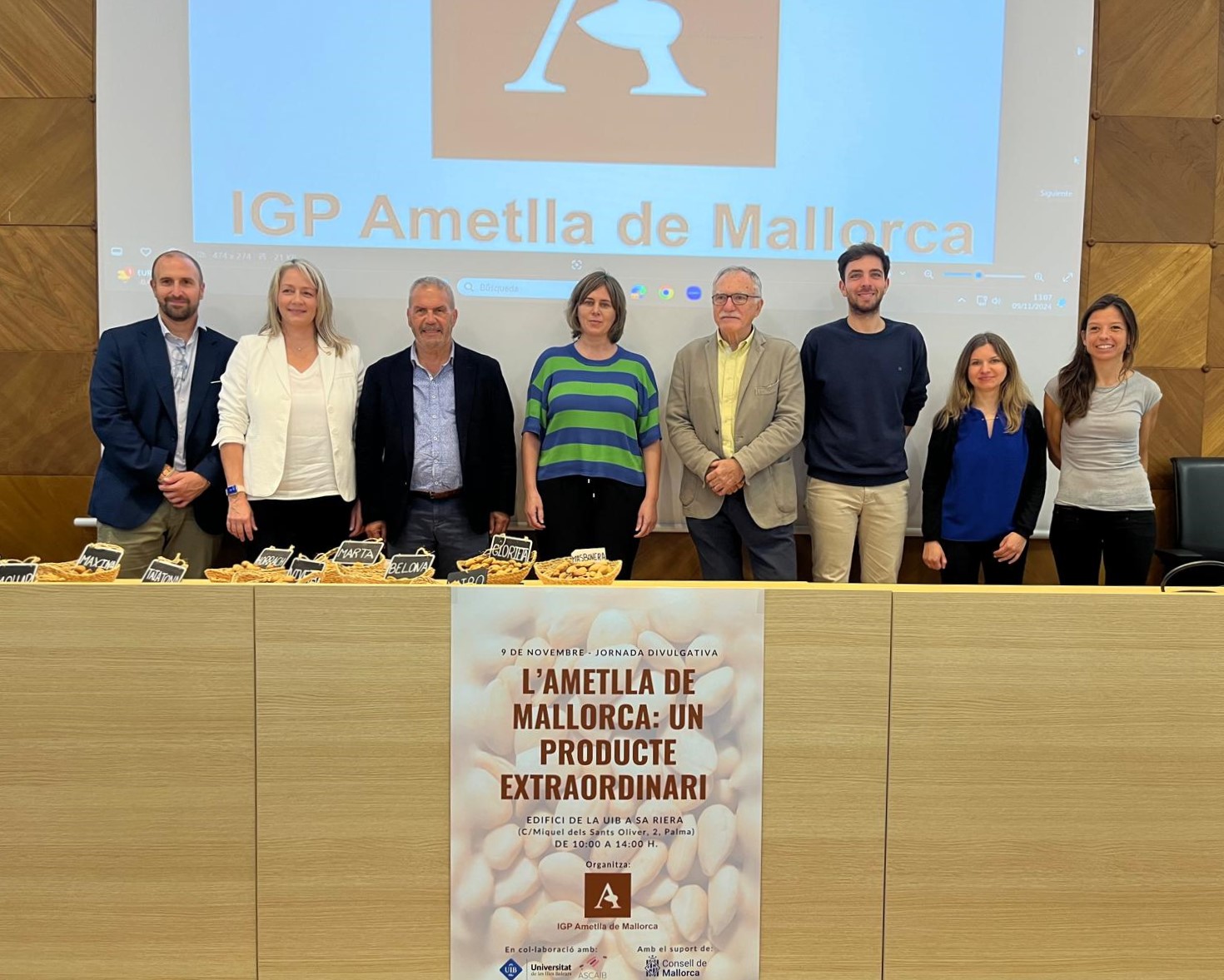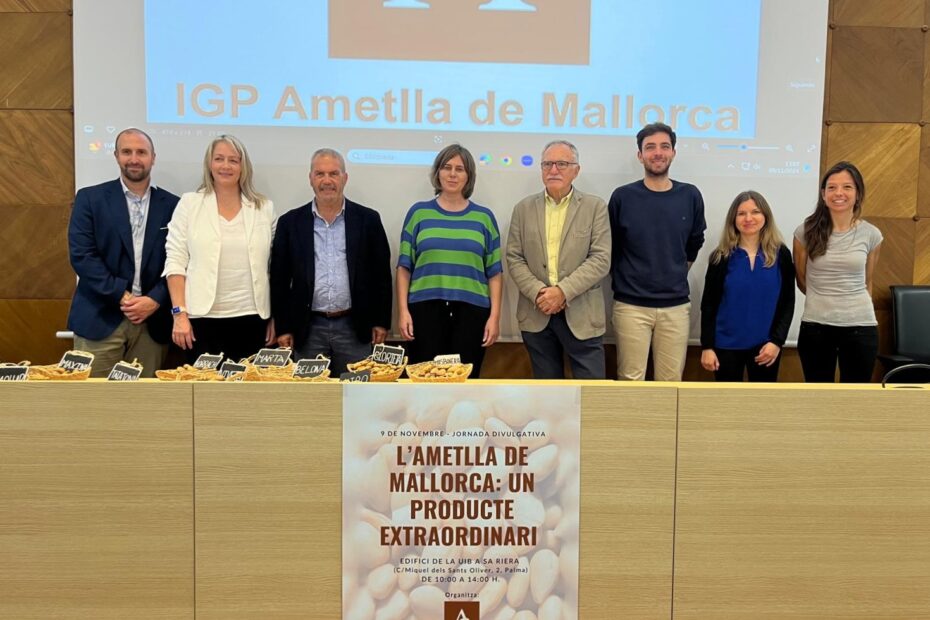Different studies and data have been presented that suggest that the lipids of the almond of Mallorca can greatly benefit health at all ages and physical and mental capacity, and that the local varieties are on average
The president of the IGP Ametlla de Mallorca, Miquel Riera, stressed that “we have an extraordinary product at a nutritional and culinary level, but we have to believe it and we have to value it, and above all consume it more in everyday life”
The Protected Geographical Indication (PGI) Ametlla de Mallorca has celebrated today, in the Sa Riera building of the UIB in Palma, an informative day on the nutritional properties of this dry fruit so typical of the island and its gastronomy, with the title ‘L’ametlla de Mallorca, un producte extraordinari’, in front of about fifty people from the world of science, cooking or agriculture.
As explained by the IGP, the objective of the day was to value the high quality of the almond grown on the island, since the land of this and its characteristics give it different properties from the rest, very important at a nutritional level due to its profile of healthy lipids in terms of oleic acid and linoleic acid, or its levels of magnesium, phosphorus or calcium. Nutrients all very important to prevent cardiovascular diseases or to practice sport.
In his speech, the president of the IGP Ametlla de Mallorca, Miquel Riera, wanted to highlight that “we have an extraordinary product at a nutritional and culinary level, but we must believe it and value it, and above all consume it more in the day to day”, and expressed the need to think more as consumers “in the quality and effects for our long-term health of what we eat”.
The conference included interventions by different experts in the field, such as doctors in nutrigenomics and researchers at the UIB, Sebastià Galmés and Jadwiga Konieczna; the doctor in cardiology and president of the Social and Economic Council of the IdISBa, Miquel Fiol; or the doctor in agricultural engineering and head of the Plant Production section of the IRFAP (Institute of Research and Agricultural and Fishing Training of the Balearic Islands), Carme Garau.

In his exhibitions, it has been especially highlighted that the high content of both proteins and fiber make Mallorca’s almond an “exceptional food to take care of yourself at all ages”, and that neither its high fat content “is a problem but rather a virtue, since these are mostly healthy”, composed of monounsaturated and polyunsaturated fats in up to 92 percent.
In the first of the talks, by Dr Sebastià Galmés, it was exposed with data that a daily intake of a handful of almonds (about 25 grams) “helps to reduce tiredness or to have good teeth and bones”, among other properties, thanks to its high content of magnesium, phosphorus and especially vitamin E. In people who do sport, “it has been shown to improve performance and recovery”.
Dr. Koniecza, meanwhile, explained how a continuous consumption of both almonds and other dried fruits, studied in different groups of people, “suggests a possible protective role during pregnancy and neurodevelopment in childhood”, thanks to folic acid and the accumulation of fatty acids in nerve tissues, which help memory and executive functions.
In the second part of the day, the doctor in cardiology Miquel Fiol has exposed different studies that associate the daily consumption of almonds and other dried fruits, within the framework of a Mediterranean diet and a healthy lifestyle, with a “significant reduction in the risks of suffering from heart attacks and other cardiovascular diseases during adulthood”, as well as an improvement in cognitive function.
Finally, the doctor in agricultural engineering Carme Garau spoke about the quality of the different local varieties of almond, demonstrating that “practically all meet and exceed by far the requirements to be considered as sources of energy, fiber and proteins, favoring the digestive system, tissue regeneration and cell protection”. In addition, he said, “they are the best adapted to the edafoclimatic conditions of Mallorca, in addition to preserving unique tastes”.
The event, which had the support of the Consell de Mallorca, was attended by the Minister of Economic Promotion and Local Product, Pilar Amate; and the insular director of the branch, ‘lvaro Roca; as well as the manager of the IRFAP, Georgina Brunet. The Association of Roasted Chefs in the Balearic Islands (ASCAIB), with chef Gabriel Oliva and his team, have prepared meals based on local products with PGI or PDO stamps.



